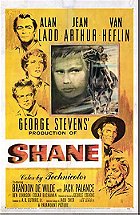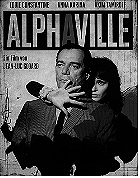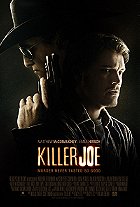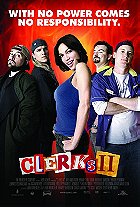On the surface, Green Street Hooligans looks to be a film about football hooliganism and football in general, as it's set in England and concerns avid fans of the sport. However, it's far deeper and more compelling than the premise suggests. Co-written and directed by female German filmmaker Lexi Alexander, Green Street Hooligans is reportedly part autobiographical, which lends a sense of authenticity and grit to the production. Unexpectedly powerful, the movie is predominantly a study of divided loyalties, relationships, friendships and the cost of violence, emerging as far more than just a straightforward story about football.

An intelligent American journalist student, Matt Buckner (Elijah Wood) is unfairly expelled from Harvard after his roommate frames him for drug possession. With little options, Matt flies to visit his sister Shannon (Claire Forlani) and her husband Steve (Marc Warren) in England. Steve wants to take Shannon out for a romantic evening, hence he decides to leave Matt in the hands of his brother Pete (Charlie Hunnam). Pete is a full-blooded football hooligan, the full-time leader of a gang. Although reluctant, Pete decides to takes Matt to a match, after which a fight breaks out with a rival football club that hooks Matt into Pete's way of life. Ingratiating himself into Pete's gang, Matt soon earns the respect of the members, who affectionately nickname him "The Yank." However, Matt is a journalist student and an American, two factors of which could stir up turmoil with not only rival football gangs, but his own friends as well.
It's doubtful that many are actually aware of football "firms" in the United Kingdom, let alone the type of activities they are involved in. The presence of Matt therefore gives the film the chance to provide an outsider look into this culture; he is our anchor into the story. Interestingly, for a movie concerned with football clubs, there is only one scene depicting the sport. Green Street Hooligans is more concerned with the gangs and the juvenile way they squabble over their favourite teams. However, the screenplay (by Alexander, Dougie Brimson and Josh Shelov) contains pedestrian elements. Its use of clichés in its narrative structure is forgivable since it all gels quite well, but the dialogue is too cheesy and standard-order at times. For instance, Matt's voiceover that opens the film includes the declaration "What I was about to learn no Ivy League school in the world could teach me." Later, Matt declares that he doesn't know where his home is anymore. It may be easy to feel these sentiments, but they sound too cheesy when vocalised, and such things should be expressed wordlessly through themes and images.

Green Street Hooligans packs one hell of an emotional wallop as it approaches the finish line, leading to an unexpectedly powerful and affecting ending that may have some viewers in tears. In spite of various claims that the film glamorises violence, it does the exact opposite, examining the brutal effects of brawling which do not look fun at all. Director Lexi Alexander is a former kickboxing champion, thus the fight scenes are graphic and well-choreographed, not to mention shot and edited in an effective fashion. Green Street Hooligans looks great as well; scenes were shot in real stadiums, pubs and alleyways, which heightens the production's sense of authenticity. Christopher Franke's musical score is just as impressive.
Wood displayed great emotional depth as Frodo Baggins in the Lord of the Rings trilogy, and he's every bit as good and mature here. People may always associate Wood with Frodo, but the actor has genuine chops, and deserves to emerge as more than just a Hobbit. Wood is the heart of Green Street Hooligans, and he nails the role. Most impressive is the way he sells Matt's transformation from naïve young journalist to a hardened man of depth. Every bit as good, if not better, is Charlie Hunnam as Pete. He initially seems to just be a dumb thug who brawls and belittles, but Hunnam plays the role with great depth and humanity, resulting in a mesmerising performance. The supporting cast is solid all-round, with Claire Forlani submitting her best work in years, and with a hypnotising turn by Marc Warren. The actors all hit their marks; Alexander coaxed some phenomenal performances from the well-chosen selection of actors.

A technically flawless piece of work, Green Street Hooligans tells a great story in a powerful way, with sublime acting and outstanding filmmaking prowess. Perhaps the biggest achievement of the film is that it works as a visceral, macho slice of entertainment, yet it still has thought and depth. And if anyone truly believes that Green Street Hooligans glamorises violence, they completely missed the themes and messages of the movie.
7.9/10
 Login
Login
 Home
Home 183 Lists
183 Lists 1674 Reviews
1674 Reviews Collections
Collections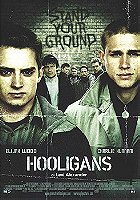
 0 comments,
0 comments, 






